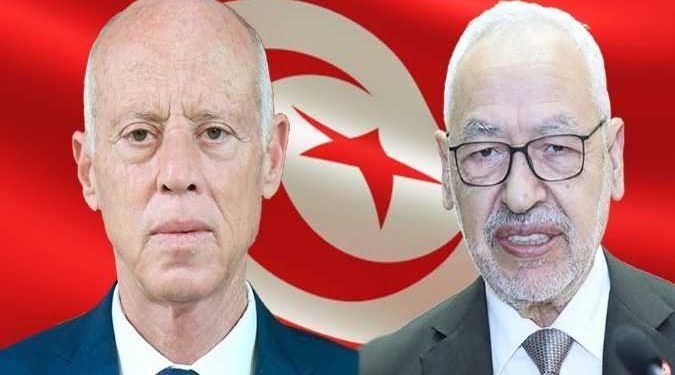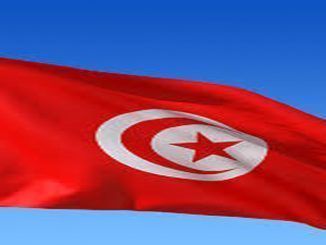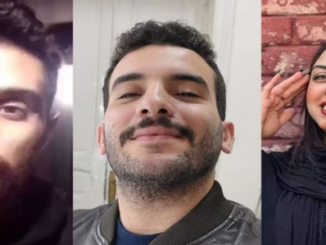
The Tunisian authorities have arrested Ennahda President Rached Ghannouchi and raided the party’s headquarters, in escalation of crackdown on political opponents.
In a sharp escalation of the crackdown on President Kais Saied’s political opponents, authorities arrested Ennahda President Rached Ghannouchi yesterday on “incitement” charges.
Dozens of officers raided Ghannouchi’s house in the evening and took the 81-year-old former parliamentary speaker into custody.
They were acting on a warrant from prosecutors, who had ordered him arrested over his recent comments warning that authorities’ actions were setting the stage for “civil war.”
“Any attempt to eliminate one of the [country’s] political components can only lead to civil war,” Ghannouchi had said on April 15.
“It is inconceivable to imagine Tunisian society without Ennahdha, without political Islam, and without the left.”
A National Guard spokesperson said that those comments constitute a criminal act “intended to overthrow the government or incite inhabitants to attack each other.”
According to Ennahda, authorities are holding Ghannouchi under the Anti-Terrorism Law, which they are using to prevent him from meeting with his defense team.
They forced him to sit in an interrogation room all night despite his refusal to speak without his lawyers present, and they did not allow him to use the bathroom unless he kept the door open.
Ghannouchi had been summoned for questioning multiple times since Saied’s July 25, 2021 coup, but this is the first time he has been suddenly arrested in that time. He was imprisoned twice under Tunisia’s previous dictators.
Ghannouchi’s arrest was quickly followed by a crackdown on his Ennahda party and the wider National Salvation Front.
Police arrived at Ennahda’s headquarters in Tunis today, ordered everyone to leave, and began a search, saying that the building would be shut for at least three days.
Prosecutors assigned a cybercrimes unit to investigate the headquarters, and authorities have also closed the party’s other offices around the country.
A decree circulating online, signed by new hardline Interior Minister Kamel Feki, instructs security forces to prohibit Ennahda from meeting across the country and the National Salvation Front, of which Ennahda is a member, from gathering in Tunis. Police blocked access to the Salvation Front’s headquarters shortly before members were due to hold a press conference there today.
Police arrested another three prominent Ennahda officials today: Mohamed Goumani, Belkacem Hassan, and Mohammed Chnaiba. They refused to answer questions after they too were denied contact with their lawyers.
Tunisian voices and international actors condemned the developments, but Saïed struck a defiant tone.
The European Union stated today that it is following Ghannouchi’s arrest and the closure of Ennahda’s headquarters with “great concern.”
The arrest “adds to the ongoing series of detentions of political actors from various opposition groups,” the statement continued.
“While waiting for official information on the reasons for this arrest, we recall the importance of respecting the rights of the defense as well as the right to a fair trial.”
As for the attacks on Ennahda, the European Union underlined “the fundamental principle of political pluralism.”
Lord Ahmad, the UK minister of state responsible for North Africa, wrote, “Arrests, including of Rached Ghannouchi, and ongoing restrictions on legitimate opposition in Tunisia are eroding the space for political plurality.”
He urged Tunisia’s government to “respect the principles and values of an open and democratic society, for the benefit of all Tunisians.”
Ennahda, for its part, condemned the “very dangerous development,” demanding Ghannouchi’s immediate release and an end to attacks on political opposition.
Saied, on the other hand, vowed to continue his “merciless battle on the road to national liberation.” He said at a ceremony at the presidential palace.
“We wage a relentless war against anyone who seeks to hit the state, its institutions, to hit the homeland because they are no patriots.”
He also urged the judiciary to not to disappoint “the expectations of the Tunisian people and the expectations of history.”



